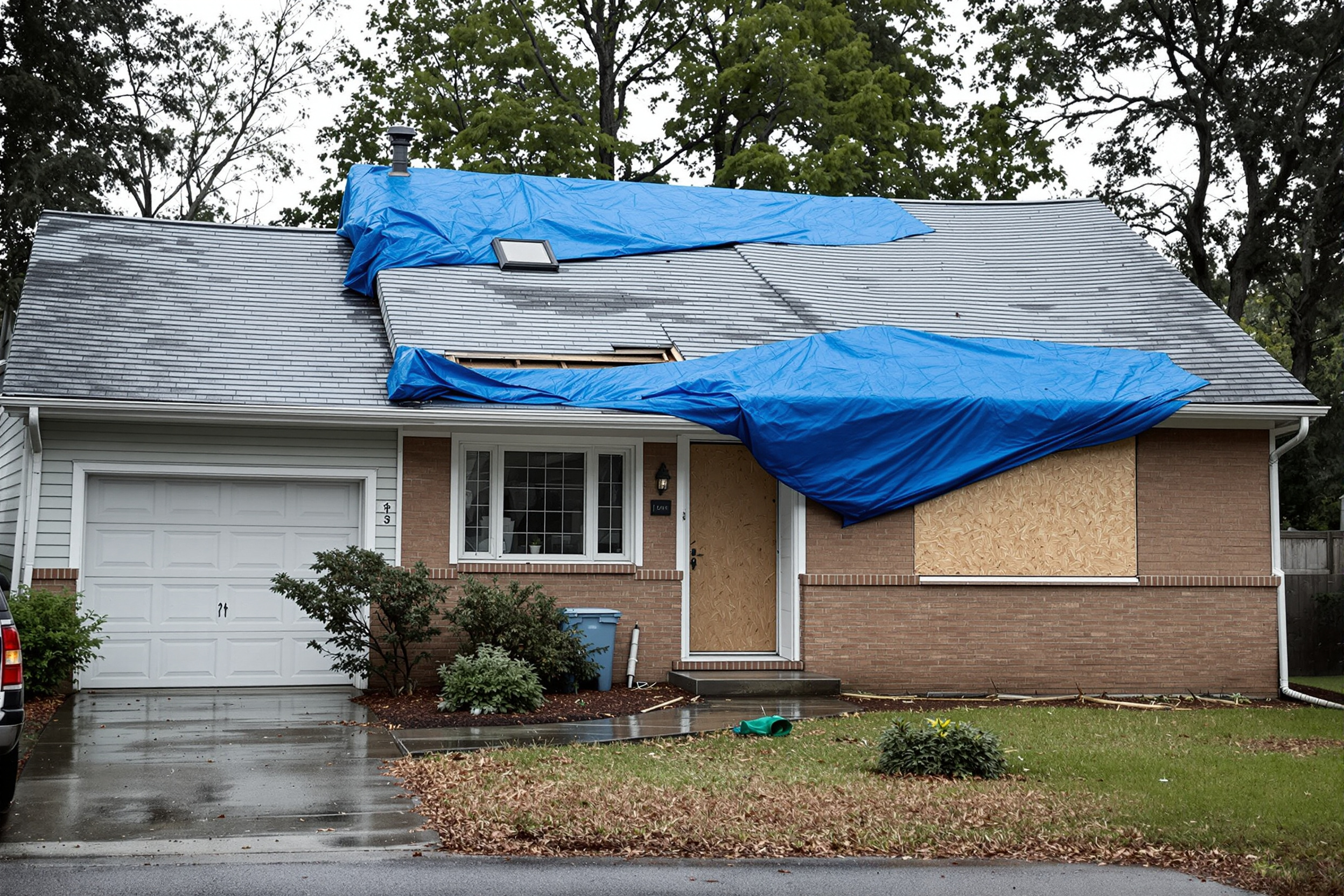You're a savvy real estate investor. You know the ins and outs of the rental market, and you always keep up with the latest changes in landlord-tenant law. But you have one nagging question: does my landlord insurance policy cover a vacant property?
The answer isn't as straightforward as you might think. In this article, we'll explore how landlord insurance can (and can't) help if your rental property is unoccupied for an extended period of time.
5 Different Types of Vacancies That Could Occur
Vacancies in rental properties can occur for a variety of reasons. Whether due to tenant turnover, seasonal changes, or an unforeseen natural disaster, vacant rentals can be challenging for landlords and property managers. Let’s look at some common vacancy scenarios that may occur when managing rental properties.
Tenant Turnover Vacancy
This vacancy occurs when tenants move out before or at the end of their lease agreement period. In some cases, landlords may also encounter unexpected tenant turnover if renters break their lease agreement and move out before their lease ends.
Seasonal Vacancy
Due to seasonal demand fluctuations, rental properties in heavy tourism or vacation markets may experience periods of vacancy. During peak seasons, rents are often higher due to the increased demand, while landlords may struggle to fill vacancies and may opt to lower rents accordingly during the off-season.
Natural Disaster Vacancy
Unfortunately, natural disasters can leave rental properties vacant due to damage caused by floods, fires, earthquakes, tornadoes, and other events that render them uninhabitable. While this type of vacancy is not always preventable, landlords should have an emergency plan in place should such an event occur.
If you want to know which natural hazards your property could be at risk for, use Obie’s free Risk Map.

Maintenance Vacancy
These vacancies are due to necessary repairs or renovations on a rental property. Landlords may need to close off some units while work is being completed, making them temporarily unavailable for rent.
Long-Term Vacancy
These refer to properties that have been vacant for extended periods of time and can become difficult to rent due to their age or location. In some cases, landlords may reduce the rent to attract tenants faster.
No matter the type of vacancy, landlords and property managers should be working proactively to address correctable issues quickly and efficiently. By staying on top of vacancies, landlords can minimize the period of time that their rental property is unoccupied and maximize their return on investment.
Does Landlord Insurance Cover Vacancy?
Unfortunately, standard landlord insurance does not cover vacancies that occur when a tenant moves out or when a lease ends. As a rule of thumb, if it takes longer than 30 days to find a new tenant, your landlord policy won't offer vacancy coverage. In order to be fully covered, you'll have to get additional coverage at an increased insurance cost.
Even though it means spending more money, vacancy insurance coverage may be crucial. Vacant and unoccupied properties are more likely to experience problems like vandalism, squatters or require repairs that may cause significant damage if they go unnoticed.
Depending on your preference, you can get vacancy coverage as a rider to your current landlord insurance coverage or purchase it as a separate, individual policy. Whatever you choose, talk to your insurance agent or broker to understand the specifics of your policy, especially its definition of vacancy and any other exclusions.
Other Risks Covered by Landlord Insurance
Landlord insurance may not cover vacancies, but it does protect against many risks that could result in significant damage:
- Property coverage: Insures your property's primary structures against damage from fire and weather, among other types of destruction. It also covers additional property structures, like garages, and interior contents, like appliances, if you provide a furnished rental.
- Liability coverage: Insures against public liability claims. It covers legal fees, medical expenses, and additional costs when a third party is injured or if their possessions get damaged on your property.
- Loss of rental income: When clients move out due to repairs or renovations, your insurer reimburses you for lost rental income. This protection enables you to meet payment obligations, such as a mortgage and/or utility bills.

10 Tips to Prevent Vacancy
You can't always prevent your property from becoming vacant, especially if your tenants are moving out for reasons beyond your control, like relocating to another state or country. However, you may be losing tenants more often than necessary if you’re neglecting to take care of the little things that matter to them.
Here are 10 actionable tips that could help you reduce the vacancy rate on your property:
- Research the local market and set a competitive rental price to attract potential tenants.
- Advertise widely on popular rental listing websites, social media platforms, and print publications.
- Ensure that your property is up to date with necessary repairs or upgrades before renting it out.
- Screen all prospects thoroughly, including conducting criminal background checks and credit reviews, to ensure you only allow reliable tenants in your property.
- Be mindful of a tenant’s rights when signing a lease agreement, and enforce those laws throughout the landlord-tenant relationship.
- Offer prospective tenants incentives, such as lower security deposits or discounts on rent payments, to entice them into signing a lease.
- Keep your rental property clean and well-maintained to ensure your tenants feel comfortable in their new home.
- Be open to communicating with your tenants, and respond quickly to any questions or concerns they may have about the living arrangements.
- Offer flexible lease terms that make it easier for tenants to renew their lease if they want to stay longer than expected.
- Consider a minimal or even no rent increase when offering a new lease to the existing tenant, especially if they pay rent on time and are respectful of the property.
Where to Find Vacancy Insurance for a Rental Property
Finding the right vacancy insurance policy can be daunting since most traditional providers limit coverage options or don’t offer the type of coverage you need at an affordable price.
Fortunately, online insurance brokers like Obie can provide more comprehensive and cost-effective solutions by leveraging cutting-edge technology. Obie’s streamlined process simplifies the search for rental property insurance, so it’s easy for you to find the perfect policy that fits your needs and budget.
Obie’s expertise in landlord insurance makes searching for insurance for your rental property simple and more cost-effective. With Obie, landlords are saving an average of 25% on their insurance policies.
To get started, visit the Obie website and enter your rental property address to receive an instant quote.







